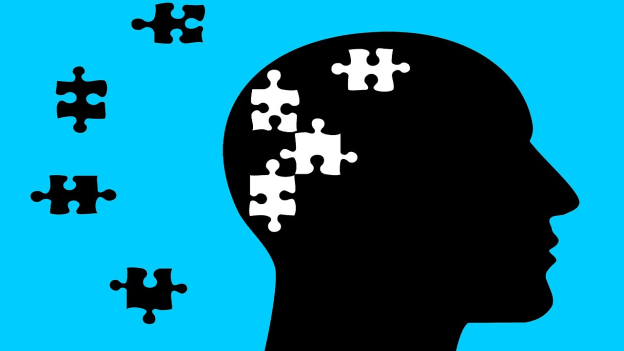Greater mind-health awareness, increased resilience a silver lining in the pandemic: AXA Study

While the pandemic has had a profound impact on all of us in some way or another, there is a silver lining for mind health in the form of greater awareness and increased resilience.
As per annual AXA Study of Mind Health and Wellbeing 2022, after the economy (56%), mind health (46%) is the second most common thing most people around the globe think the pandemic will have a lasting impact on.
People in most Asian countries (42%) were also more likely to say the pandemic improved their ability to meet big challenges than in European countries (33%). In mainland China, 68% of people said that was the case, compared with 41% in Hong Kong and 17% in Japan.
While stigma and social taboos have often prevented people from seeking help, the pandemic has pushed mind health discussions to the fore. In Europe, 31% of respondents said the stigma around mind health conditions had declined since the pandemic began. However, in Asia that figure was higher at 33%, with mainland China at 50%, Hong Kong at 27% and Japan at 23%.
The study by Paris-headquartered insurance firm AXA examines the building blocks of mental wellbeing in Europe and Asia and is a part of the company’s effort to equip individuals and businesses with the insights they need to foster positive mind health, contribute to effecting change in society and ultimately become fit to flourish.
Respondents to the survey were classified into four mind-health states based on their responses, from “flourishing” at the top to “getting by,” “languishing” and “struggling.” Flourishing refers to the pinnacle of mind health, getting by describes those who may have some areas of good wellbeing but not enough to reach the state of flourishing, languishing represents the absence of positive wellbeing and struggling is associated with emotional stress and psychosocial impairment.
The findings reveal that about a third (32%) of people globally are getting by, with only 24% flourishing. The gap is wider when examining each region, with only 20% of those in Asia flourishing versus 25% in Europe, and 35% getting by in Asia compared with 32% in Europe.
Among Asian countries and territories in the survey, mainland China had the largest proportion globally of people getting by, at 39%, followed by Hong Kong at 35%. The largest proportion languishing was in Japan, at 35%, followed by Hong Kong at 33%.
“It is encouraging to see that while the pandemic has disrupted our lives in many ways, it has opened the door to a growing awareness and understanding of mind health across society. The findings of the AXA Mind Health Study also show that it is possible to proactively acquire skills that can enable people to protect and optimise their mind health,” says Gordon Watson, CEO of AXA Asia and Africa.
“We have made a conscious decision to use the term ‘mind health’ over mental health for this research, avoiding the common misconception that mental health only relates to mental ill health. It encompasses a range of societal, social and individual factors, and enables us to highlight the positive impacts and elements of good mind health,” he adds.
Skills needed to become ‘fit to flourish’
Mental health conditions such as stress, anxiety and depression are common among people in Asia, according to the survey.
Yet while these conditions are generally detrimental to happiness, people who managed them well were almost as likely to be happy as those without the conditions. This is reinforced by the finding that the primary driver of differences between the four states of struggling, languishing, getting by and flourishing, apart from mind health conditions, is the number of skills people have.
The research identified ten key skills that together help one become ‘fit to flourish’, reaching the peak of mind health. These include emotional intelligence (EQ), self-acceptance, connectedness, pride in achievement, meaning and purpose, challenge response, resilience, self-confidence, close relationships and physical health behaviours. As a person’s number of skills grows, so too does the likelihood of their flourishing. People need at least eight skills to reach that state.
Youth, women struggle more; efforts needed to enhance workplace mind health
The research, which also examined mental health challenges faced by different groups of people, found that mind health is strongly correlated with age, with young people (aged 18 -24) struggling and languishing the most.
In mainland China, 60% of young people are either getting by or languishing, compared with 63% in Hong Kong and 78% in Japan.
Women tend to struggle more than men, with 9% of women struggling in mainland China versus 8% of men and 17% of women struggling in Hong Kong versus 13% of men. The exception in Asia is Japan, where 22% of men were classified as struggling compared with only 17% of women. At the other end of the scale, 15% of women in Japan were flourishing, versus only 11% of men.
Mind health is also tied closely to the workplace. Those who feel supported at work in terms of mental health are 1.7 times more likely to be happy and twice as likely to be flourishing. Yet results suggest the approach to promoting mind health in the workplace is patchy. In mainland China, 31% say the hours they work cause them distress, the most of any country surveyed. That compares with 23% in Japan and Hong Kong. Only 32% in Hong Kong and 20% in Japan believe their employers provide good support regarding mental health, compared with 56% in mainland China.















